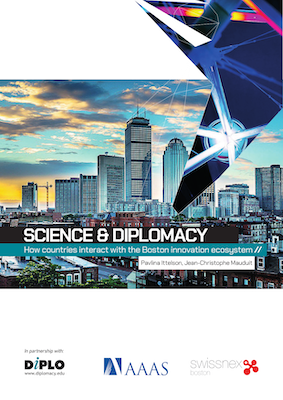Note: This article is a part of the publication ‘Science diplomacy capacity development: Reflections on Diplo’s 2021 course and the road ahead’
While the relevance of Science Diplomacy (SD) for the challenges of the 21st century cannot be overstated, the practice is itself nuanced and many of its aspects are still unexplored (Höne and Kurbalija, 2018). The recent and increased attention to Science Diplomacy can be attributed to the recognition that science is as much a cause as it is a cure for many of the current global challenges (Turekian, 2018).
In their three-part definition, the Royal Society and the American Association for the Advancement of Science categorized Science Diplomacy as: ‘diplomacy for science’, ‘science for diplomacy’ and ‘science in diplomacy’ (Royal Society, 2010). Under these themes, Science Diplomacy highlights the widening intersection between science and politics across the globe and addresses the science and policy interface (Rungius and Flink, 2020).
To explore this further, we look at the advancement of science and technology and the effect it has had on the world system. The rise in technological systems for societal development and the global interconnectedness of science has undoubtedly changed and enhanced the face of multilateral diplomacy and international policymaking. Additionally, the scientific nature of the causes and possible solutions to the problems of the 21st century calls for constructive international partnerships (Fedoroff, 2009). This calls for science and Science Diplomacy to be placed at the center of global discussions regarding the way forward for world problems and the sustainable development goals (Lord and Turekian, 2007).
The COVID-19 pandemic is the most recent example of a global health challenge. With it, we have seen the relevance of and need for health scientists amplified. There has been a global explosion of scientific collaborations and knowledge exchanges between scientists during this pandemic period. However, the various aspects of life affected by the pandemic necessitated a plethora of actors from different science and social backgrounds to work together, and hence a transdisciplinary approach to the solutions. Knowledge sharing in such contexts allows for decisions that promote growth in science, while at the same time fostering economic competitiveness and societal development at the policy level.
International science collaborations can be harnessed to improve bilateral and multilateral relationships between countries (Rana, 2007). The links forged here, between traditional and non-traditional diplomats enhance the mutuality of benefits between the scientific and the foreign policy communities (The Royal Society, 2010). As a young scientist from a developing country, I can see how this would open more opportunities for training, access to advanced facilities and resource sharing and new careers in low- and middle-income countries (LMICs). This would speed along what Thomas L. Friedman referred to as “the flattening of the world” (Friedman, 2005).
Collaborations can further be used as a platform for training in science leadership, research, science communication and all-round capacity building among budding scientists in LMICs. According to the University World News Africa edition 2017, programmes like the African Science Leadership Program aim to develop science leadership through science literacy and transdisciplinary communication with policymakers and the public.
Through this course, I have been challenged on how to make scientific research relevant to the non-science community and bridging the gap in trust between science and the public. This requires me to move away from thinking in terms of isolated academic research to using science to address current or forecasted community needs. Active involvement of governments in science programmes, as is advocated under ‘diplomacy for science’, would further strengthen and broaden understanding of the dynamic role of science and technology in decision making, and inspire scientific contribution outside academia.








